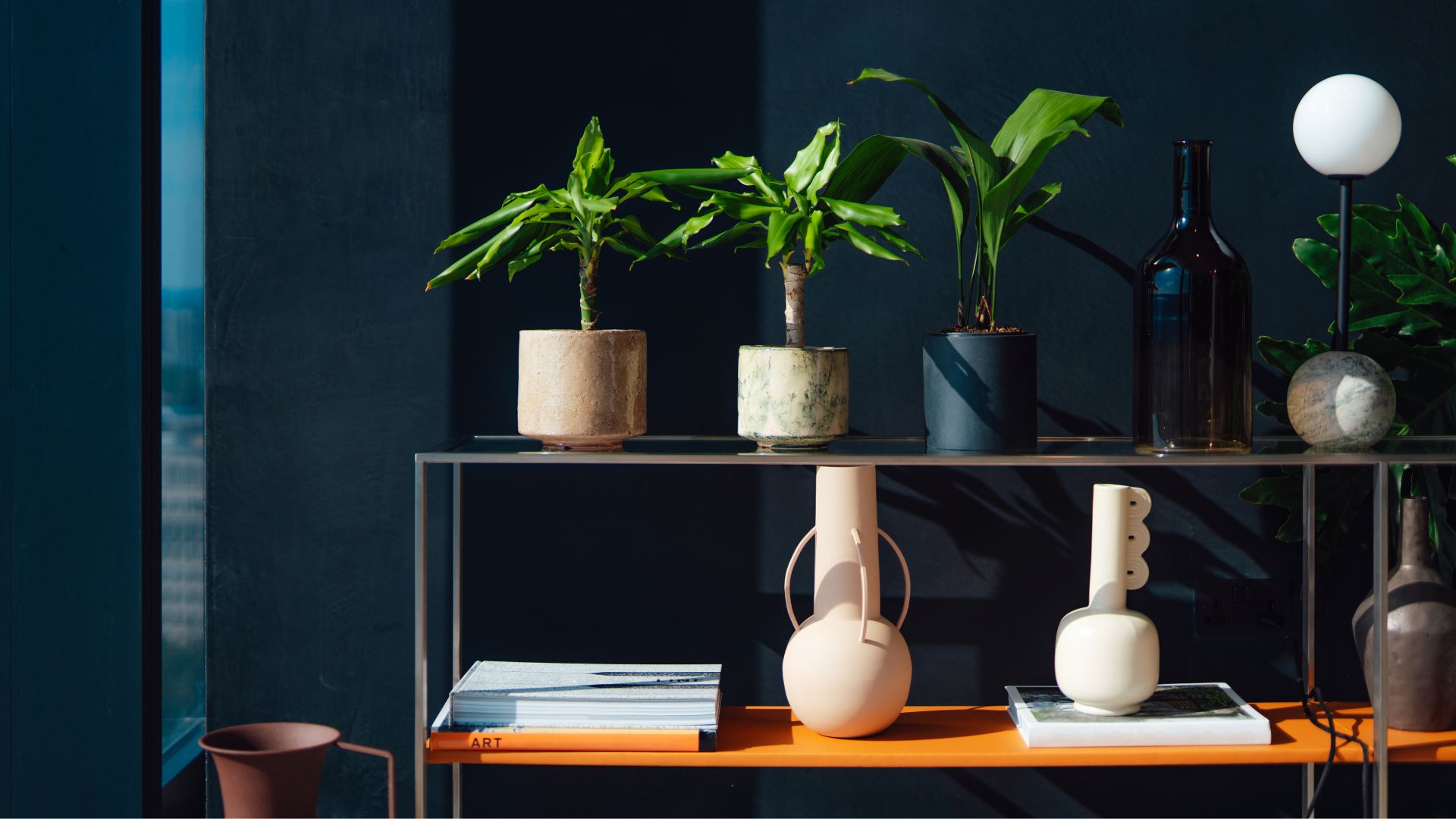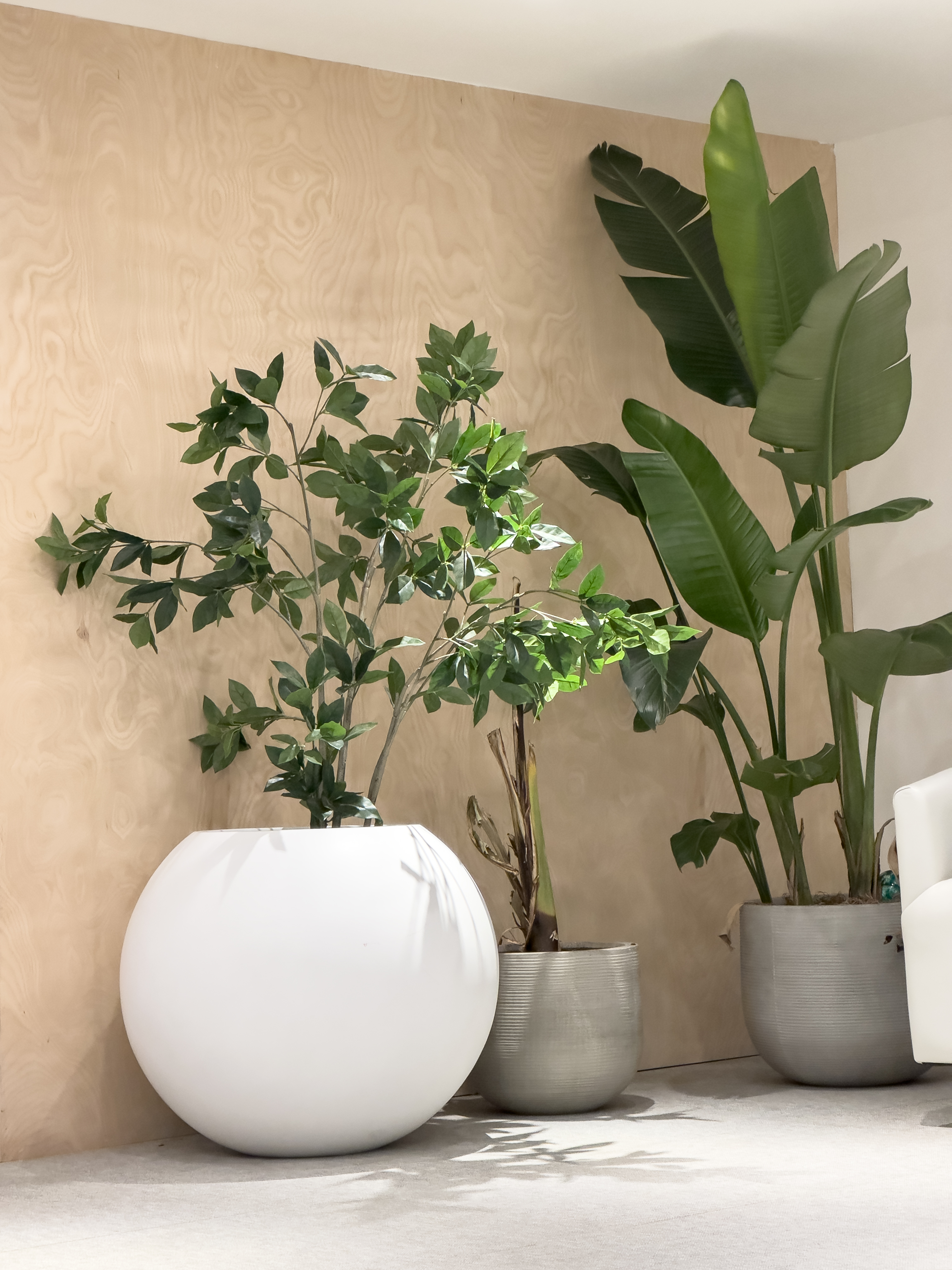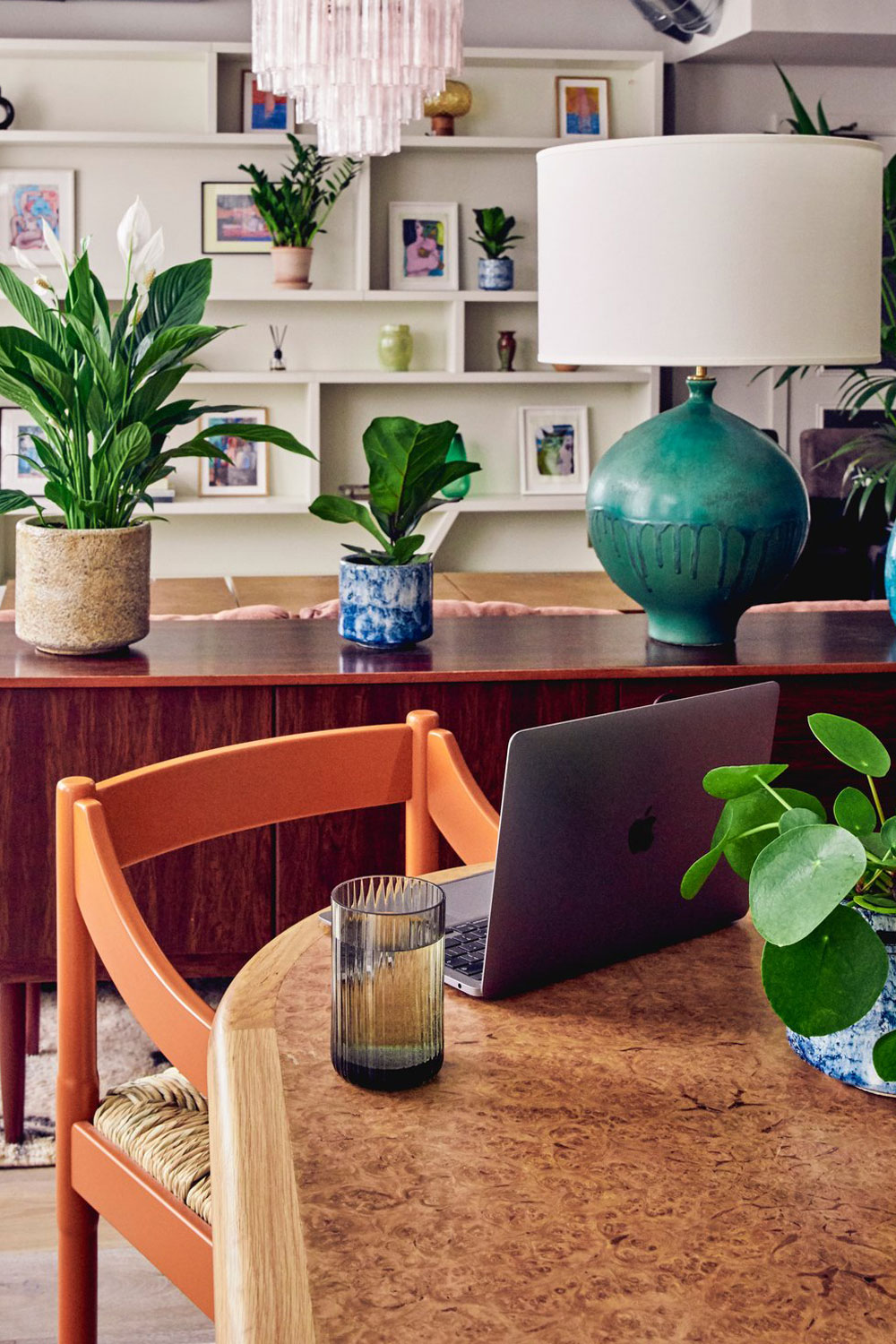
Believe it or not, the narrative of wintry months being inconducive for houseplants could not be further from the truth. Now that we've officially busted that myth, we can move on to revealing the true reasons your collection of indoor crops experiences an annual decline around this time of year.
Winter houseplants are actually known to be hardy enough to handle the temperature drop that occurs inside a home during this season. So, while it's not the season at fault, it might just be that your care routine is doing too much or too little to help your crops thrive.
In order to help you properly identify the cause of your houseplant's deterioration and rectify the issue for flourishing indoor foliage, we have enlisted the help of an expert to list out some of the most popular slip-ups plant parents tend to make. And if you find yourself guilty of one (or more), now's the best time to solve them before it's truly too late.
1. Gluttonous Overwatering

In conversation with gardening expert Tony O'Neill, he tells us that many houseplants enter a dormant phase in winter and require less water.
"Overwatering during this period can lead to root rot," he explains. "So it's important to check the soil moisture before watering."
He tells us that a good rule of thumb is to touch the soil surface and make sure it's dry at least a few inches down. Luckily, fixing overwatered houseplants is fairly straightforward.
Additionally, you can always use a moisture meter like this GROWIT Plant Moisture Meter from Amazon for an accurate read on your houseplant's hydration levels.
2. Inadequate Lighting

With shorter days in winter, Tony points out that it's only natural for plants to be less exposed to sunlight. However, this can be an unfortunate albeit unavoidable consequence for your sun-loving houseplants.
"Avoid placing plants in dim corners or heavily shaded areas," he cautions. "And consider using indoor grow lights to supplement sunlight if natural light is insufficient."
This FSLiving Timer Hanging Grow Light from Walmart is a great option if your home is short on windows and your plants require a dose of light during these dark times.
3. Ignoring Humidity Needs

Typically, winter is when the windows shut and the space heaters come out. And while this is essential to creating a cozy environment for you, it's not necessarily the best for your indoor jungle.
"Indoor heating can drastically reduce home humidity levels," says Tony. "Tropical plants suffering from dry air may benefit from a humidity tray or regular misting to keep their leaves from drying out."
We spotted this Starburst Cut Glass Mister from Terrain and not only is it beautiful in form, but it's a great misting tool to keep your plants refreshed at any given moment.

4. Neglecting Temperature Checks

Draft-proofing your windows is a great idea to keep your home pleasantly comfortable. However, it turns out that it could be just as helpful to your houseplants — especially if your plant corner is in a windowed space.
Tony tells us that it's important to keep plants away from cold drafts and heat sources like radiators. He finds that leaving them near frigid and hot spots can significantly stunt a plant's growth.
"Both extremes can cause temperature stress and damage plants," he explains. "I find that a stable environment away from sudden temperature changes is ideal."
5. Skipping Pest Infections

Although the onset of winter provides a break from most gardening chores, Tony points out that the cold weather doesn't discourage pests from trespassing.
"I recommend taking time out to regularly check for signs of infestations, such as whiteflies or spider mites," he advises. "This is particularly paramount if your plants are clustered together."
If one of your plant examinations ends in results indicating the prevalence of pests, you can always reach for neem oil to rid your houseplants of bugs. This Big Leaf Energy Wellness Spray from Amazon harnesses the power of neem oil to keep your crops pest-free.
6. Feeding Frenzy

For some reason, the wintry weather influences beginner plant parents to overfeed their houseplants. And while it may seem clever in theory, Tony tells us that this is one of the most common houseplant mistakes that should be avoided at all costs.
"It's imperative that you avoid fertilizing dormant houseplants," he advises. "That's because it can lead to unnecessary stress and growth that the plant cannot sustain during the winter."
If you have an over-fertilized houseplant on hand, do a quick check to identify the crop's dormant season and if it falls during the winter months, put the fertilizer down and let your plant grow in peace.
From overwatering your houseplants to overfeeding them, these houseplant care errors are easy mistakes to steer clear of. And while different crops have varied needs, these basic tips apply to a majority of popular houseplants.
If you're confused about the specifics that apply to your individual plant's routines, then you can always reach for our specialized care guides for some expert advice. That way you can keep your peace lily from browning and your Christmas cacti from turning yellow with the ease of a pro.







